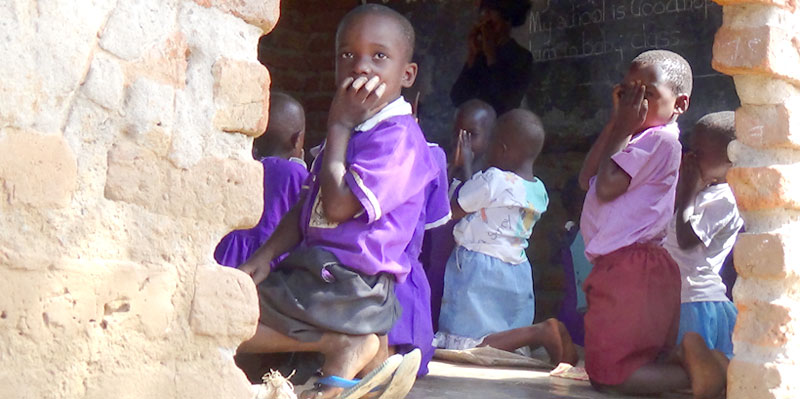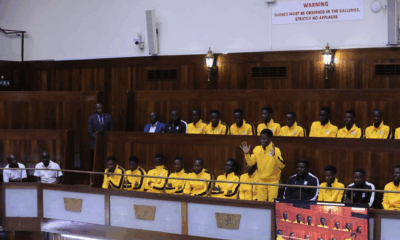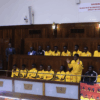News
Lwengo’s visionaries battle odds to light future for young generation
The chairman of Lwengo district George Mutabaazi has been in the news lately for whipping up uncooperative residents in the district to force them to participate in community self-help projects such as paving roads and cleaning wells.
While many across Uganda have condemned Mutabaazi’s colonial-era practices of forcing communities to engage in socially beneficial projects, the chairman has received considerable support among his residents some of whom view his no-nonsense stance as the best option for waking up thousands of people to realise the benefits of development.
Some of Mutabaazi’s support for using force is found among teachers of Good Hope Primary school, a small privately-owned school located in Manja parish in Kisekka sub-county Lwengo district.
The founder and teachers at the primary school face enormous difficulties trying to educate children from the community largely because parents are unwilling to raise money needed to pay fees for their children.
Each pupil at the private school pays about Ushs 55,000 per term. But teachers say most parents do not pay the fees, let alone raising money for lunch which all contribute to poor performance of pupils at lower as well as in national Primary Leaving Exams (PLE).
Robert Kasolo, one of the ten teachers in the school says parents have little interest in educating their children.
“Most of the parents don’t value education. A few bring their children to this private school, but majority take theirs to the government-owned school that offer free universal primary education (UPE) but where standards are much lower,”
The Director of Good Hope Milly Nalwoga says that one several occasions she sends children back home to collect fees from parents, but in many cases, this almost means dismissing the child from school as parents spend weeks before they can pay a few thousand shillings.
Kasolo recounts: “On a number of occasions, when the director senses that a child has spent weeks away from school, she’s forced to go to the parent to pick the child so they do not lose or fall out of school altogether.”
The weaknesses among parents have condemned the school to languish in performance recording only second grades, according to teachers.
Thanks to the sheer will of its founder, Namyalo, the school has defied tough odds to expand over the past ten years as seen by the growth in the quality and number of class rooms as well as the student population.
Two years ago, Nalwoga installed a six-bulb solar system to substitute torches and kerosene lamps previously used by candidates at night. But as she told a group of journalists that visited the school recently, the solar system is too week and they’ve not been able to obtain a bigger one.
Delays or outright failure by parents to pay fees for their children is standing in the way of Nalwoga’s dream of increasing the capacity of the solar system so that it becomes more reliable, provides light for longer hours of the night but also banish darkness from teachers houses who would then be expected to better prepare lessons for the kids.
Veteran journalist Michael Ssali, who is also a resident of Manja village, is full of praises for Nalwoga.
He said: “She is considered as someone who has brought positive change to the village.”
But for Grace Nakacwa, one of the teachers at the school, improving the fortunes of poor students from the village will need greater interest from parents, local administration officials, and teachers.
Comments



















